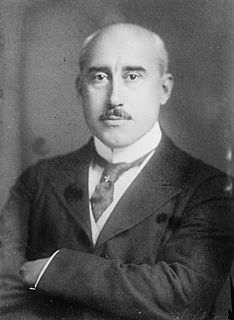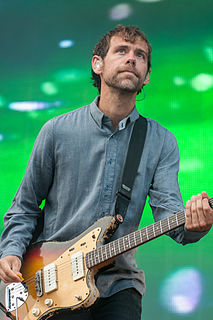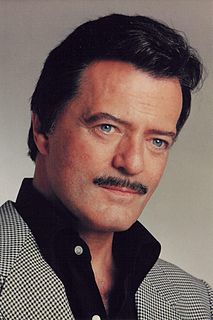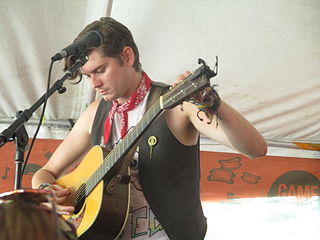A Quote by Jacob Collier
The whole life of a song doesn't end with the way that it sounds on the record. How does this song grow? What works live? What do people like to sing along to?
Related Quotes
Whatever be the depth of woe Along the path that I must go, I'll sing my song— My song of joy for all the love That's lavished on us from above, And count no loss of treasure-trove When things go wrong. I'll sing the sunlight, and the bright Soft smiling stars that gem the night; For gifts of good That God hath spread along my way, The lilt of birds in tuneful play, The harvests full and flowers gay, The whole day long I'll sing my song Of gratitude!
An audience will let you know if a song communicates. If you see them kind of falling asleep during the song, or if they clap at the end of a song, then they're telling you something about the song. But you can have a good song that doesn't communicate. Perhaps that isn't a song that you can sing to people; perhaps that's a song that you sing to yourself. And some songs are maybe for a small audience, and some songs are for a wide audience. But the audience will let you know pretty quickly.
In the media, a reviewer has his personal vision but it's passed along to a million readers or whatever. He might think that this particular song sounds like Jo Blow. Or like a Bo Diddley record that he heard six years ago. But the artist who made the record may never have even heard the Bo Diddley song. We all respond differently.
I always try to write a song, I never just want to write a record. Originally I was not writing songs for myself. ....And I can say this, most of the people who have recorded my songs are songwriters themselves. ... Even if I don't release it myself, somebody else might hear it and want to record it. When you write a song, it gives it that potential. When you write a song, a song has longevity. ... So I wanted to sing inspirational music, and that's exactly how I approached it-only the words have been changed to declare my relationship with God. Songwriting is my gift from God.
We just met for the first time and David Byrne was like, "Hey, you want to sing on this song?" and I was like, "Yes, I do want to sing on that song." He's the most legendary dude but I wasn't thinking about how he was a legend when rehearsing. I was just thinking, "Wow, this guy really knows what he wants in his music." And that ended up being the vibe, like "Oh, you wanna try that?" "Yeah, that sounds great!"
Whenever they sang a certain song in church, I used to sing it the loudest: 'Lead me, guide me, along the way!' One day, as I was singing this song, I felt as if the Lord was saying to me, 'Lead you along what way?' I realized then that if you don't have a plan, God doesn't have anything specific to direct you in.
A lot of people are really quick to say, "That song sounds like this." Or you - "He's tryin' to sound like this." And I'm always like, "You're damn right I am. That's how - that's why we're all here." You know, we all grew up idolizing another musician. That's how this works. That's how music is created.




































